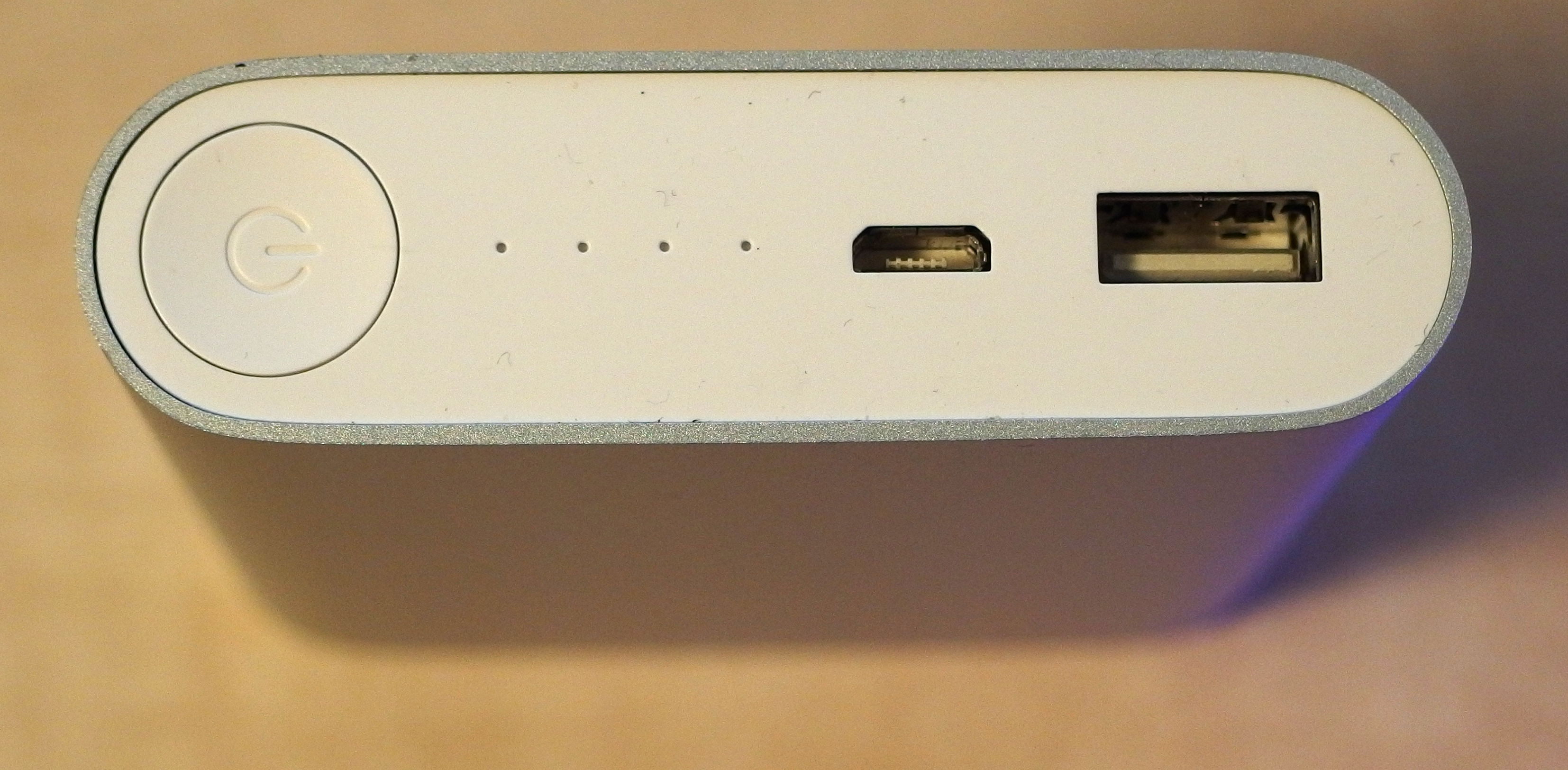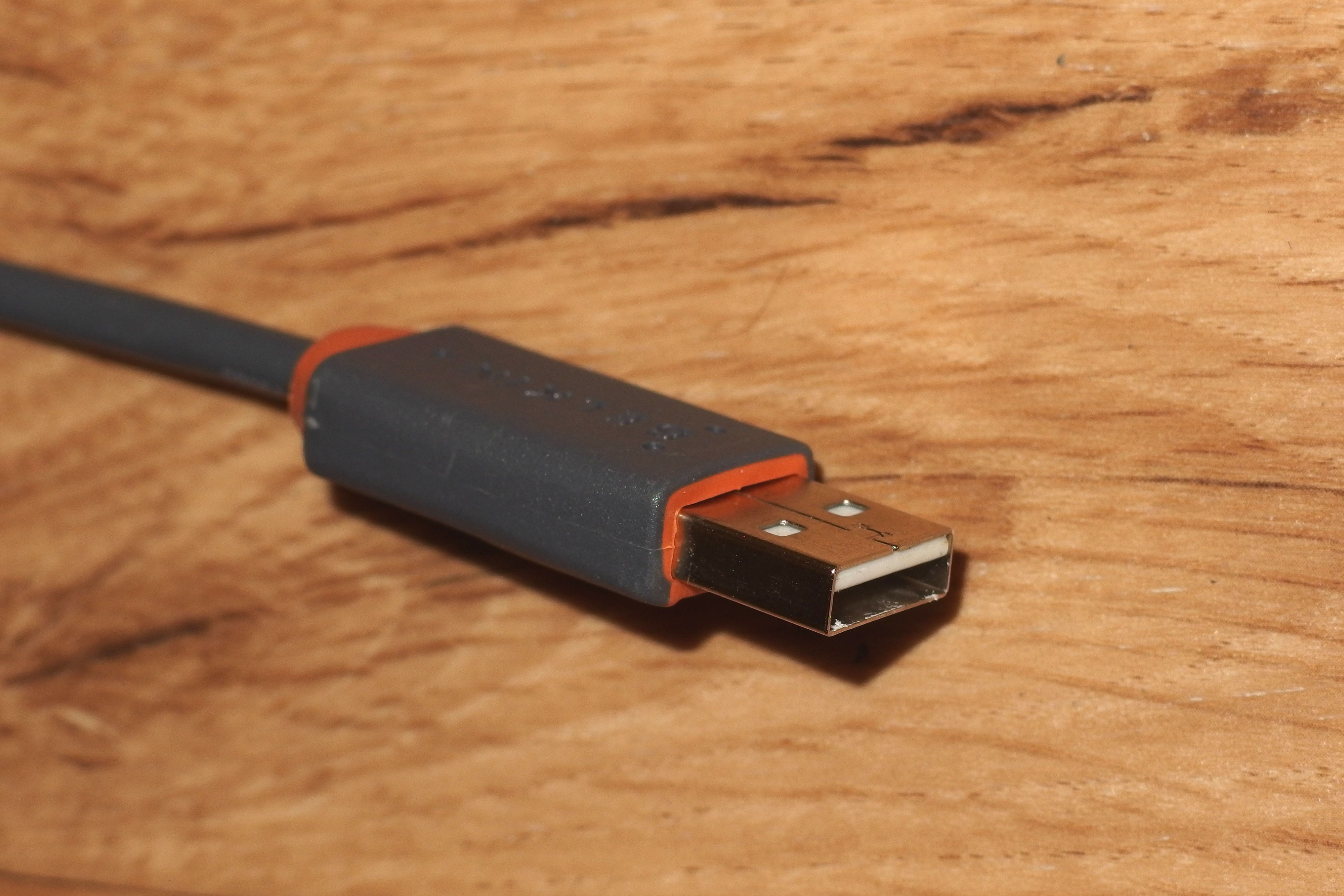5V UPS for Raspberry Pi: Difference between revisions
No edit summary |
|||
| Line 5: | Line 5: | ||
Also there is an issue with capacity. Capacity 10,000mAh means capacity of LiPol 3.7Volts battery inside power bank. After DC-DC converting you will get capacity around half - 5,000mAh for 5Volts output. If your RPi is just with all accessories is just taking out 500mA per hour this power bank will last for 10 hours maximum which is not in all scenarios (e.g. security, automation systems) enough. | Also there is an issue with capacity. Capacity 10,000mAh means capacity of LiPol 3.7Volts battery inside power bank. After DC-DC converting you will get capacity around half - 5,000mAh for 5Volts output. If your RPi is just with all accessories is just taking out 500mA per hour this power bank will last for 10 hours maximum which is not in all scenarios (e.g. security, automation systems) enough. | ||
== USB | == USB current and USB cables == | ||
[[File:Cabling.jpg|200px|thumb|Belkin USB cable]] | [[File:Cabling.jpg|200px|thumb|Belkin USB cable]] | ||
Firstly you should be aware of this. By specification USB 2.0 is able to provide only 500mA current but some devices (including RaspberryPi) might need more. For example RaspberryPi model B+ needs 700mA for itself + connected devices, total up to 2,000mA. Some tablets needs 2A and new Apple iPad needs if my information is correct 3A. | Firstly you should be aware of this. By specification USB 2.0 is able to provide only 500mA current but some devices (including RaspberryPi) might need more. For example RaspberryPi model B+ needs 700mA for itself + connected devices, total up to 2,000mA. Some tablets needs 2A and new Apple iPad needs if my information is correct 3A. | ||
Revision as of 19:10, 13 September 2014
Why not to use Powerbanks

Using power banks as a cheap UPS might seems as good idea because they are widely available and more expensive ones (around 20USD) provide enough power not only for Raspberry Pi but also for tablets and other devices. Main issue with power banks (I tried Xiaomi MI 10,000 mAh) is that they contain just one DC-DC power converter so you can either charge them or discharge them. With my power bank when I disconnected power supply from power bank suddenly resetted and stopped providing power for nearly 5 seconds so my Raspberry Pi went down. Not only that. I was suspicious that when powering output power bank was not charging itself properly.
Also there is an issue with capacity. Capacity 10,000mAh means capacity of LiPol 3.7Volts battery inside power bank. After DC-DC converting you will get capacity around half - 5,000mAh for 5Volts output. If your RPi is just with all accessories is just taking out 500mA per hour this power bank will last for 10 hours maximum which is not in all scenarios (e.g. security, automation systems) enough.
USB current and USB cables

Firstly you should be aware of this. By specification USB 2.0 is able to provide only 500mA current but some devices (including RaspberryPi) might need more. For example RaspberryPi model B+ needs 700mA for itself + connected devices, total up to 2,000mA. Some tablets needs 2A and new Apple iPad needs if my information is correct 3A.
Unfortunately not all power supplies and power banks are able to provide that much power. You can buy some cheap UPS for 500mA from Adafruit (e.g. 500 Charger - Rechargeable 5V Lipo USB Boost) but they won't be able to provide enough current for your RaspberryPi with all accesories which might use as much as 2A. Not only that - some cables has high impedance and are unable to transfer enough power for your device. For example devices with Belkin USB cable was charging only 400mA while with Samsung USB cable I was able to achieve charging speed up to 1,000mA with same charger.